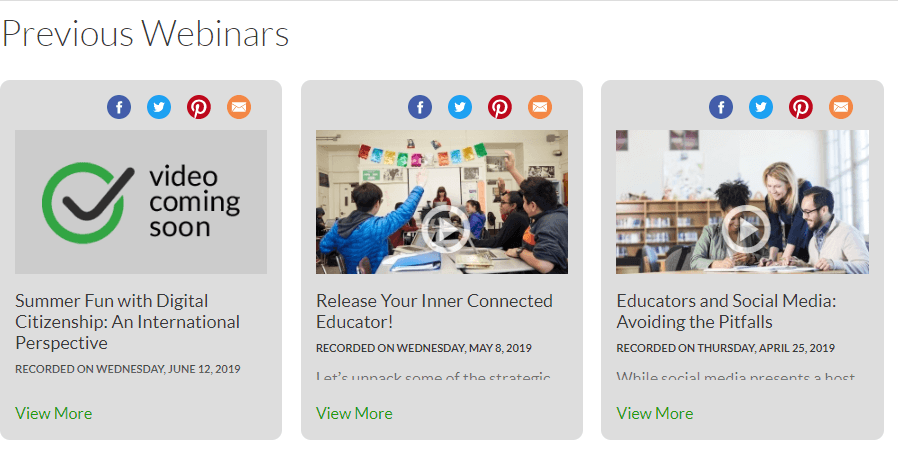-
 6 min. read
6 min. read
-
 Trevin Shirey
Trevin Shirey VP of Marketing
VP of Marketing
- Trevin serves as the VP of Marketing at WebFX. He has worked on over 450 marketing campaigns and has been building websites for over 25 years. His work has been featured by Search Engine Land, USA Today, Fast Company and Inc. Read his review of working with WebFX for the last 15 years.
Attracting customers with appealing content is a savvy way to bring more visibility and revenue to your company. However, without a coherent marketing funnel, your content marketing plan isn’t accomplishing what it could. A content strategy plan pulls your endeavors together.
A successful one puts you on a profitable path from the start. Check out this actionable guide to build an innovative content marketing plan in eight steps! If you’re looking for professional help with developing your website’s content strategy, contact WebFX.
We are renowned for our award-winning content marketing services.
1. Consider your content marketing objectives
Content marketing requires a clear trajectory, and your content strategy plan needs a defined focus to drive your business forward. Your intentions for your company can include a variety of goals. However, it’s important to review them to direct your content marketing efforts. Your reason for starting a content marketing plan will shape the content types you use, the funnel stage you concentrate on, and the sequence of your editorial calendar.
Circulating your material can lead to plenty of positive results, but which ones are useful to you? Your content strategy plan can strive for one or more of the following objectives:
- Establish brand awareness
- Promote customer engagement
- Boost website traffic
- Improve search engine optimization (SEO)
- Gain leads and conversions
- Build customer loyalty and trust
- Raise revenue
After you determine your priorities, your content has a consistent purpose to serve. Throughout the planning process, refer back to your ultimate mission to keep your website content strategy unified.
2. Take inventory of previous website content
Examining the content you’ve published in the past can reveal the current strengths and weaknesses of your company. Although you may not have a structured content marketing plan in place now, your company can still be effective in some areas. If your Instagram following responds well to your posts, for example, you can capitalize on this success by expanding your strategy on Instagram.
Pinpointing your most prominent content can give you a sense of the best way to connect with potential customers. In the same way, negative outcomes can display insufficient or ineffective content. Auditing your material offers insight into your pre-plan performance.
This starting place is your baseline that you can measure future improvement against.
3. Decide on a target audience for your content
Relating to specific demographics can build a unique understanding for prospective partnerships, as 96 percent of top business-to-business (B2B) content marketers report that their target groups think of their company as a credible resource. When dealing with general consumers, a bond is equally crucial for company growth. The target audience for your content marketing plan will find your material helpful and worthwhile, which pushes them to interact with your company.
When you know your audience, you can craft your posts, videos, or blogs with specific goals to meet your target audience’s needs. To find relevant demographic groups, create a buyer persona, the hypothetical version of your desired customer. Existing customer trends — which you reviewed while inventorying your content — and market research can form the buyer persona for your products and services.
4. Pair content types with the audience needs
Once you grasp your target audience, you can tailor your material to meet their needs or pain points. Your content can act as a solution, resource, or persuasive piece, depending on the intended audience. The content can take on different formats that will attract your customers.
A few examples include:
- Videos
- Infographics
- Social media posts
- Case studies
- Blog posts
- How-to guides
- Webinars
- Ebooks
- Podcasts
Your content type can shift between needs, but your audience may respond more readily to a specific approach. For example, if you’re attempting to engage your audience and build trust, you may want to host informative webinars regularly. 
5. Generate content ideas
Before initiating your content marketing plan, you need a range of ideas to fuel your projects. The topics you cover through your content strategy plan should fill in gaps in your industry or address current challenges of your target audience. Investigate topics competitors cover, keywords related to your company, current content practices, and industry-specific trends.
You can tackle these topics with your company’s unique expertise and position to publish popular content. To foster brainstorming, there are valuable content idea tools you can use. For instance, FAQ Fox generates topics that target high-value keywords for your industry.
It can even search for specific websites.
6. Choose promotional avenues for your content marketing
The methods by which you share your content are a significant part of content marketing. Promotional channels can cause your website traffic to surge, making your website content strategy even more powerful. Social media platforms are essential promotional channels.
This is because you can encourage followers on Facebook, Instagram, Twitter, and LinkedIn to visit your newly published material. Sponsored promotions can also produce more exposure for your content.  Regular emails can alert customers to new and upcoming content, and they can also assist you by sharing your content in their circles of influence.
Regular emails can alert customers to new and upcoming content, and they can also assist you by sharing your content in their circles of influence.
You can extend incentives to spark this word-of-mouth behavior from individuals, which can help your website content strategy.
7. Chart out an editorial calendar
Accumulating a library of well-received content takes organization, and an editorial calendar allows you to plot out the creation and release dates of your material. Forming a solid collection of blog posts and videos shows that your company is a trusted resource in your industry. The dates you choose for subjects can correspond to seasons or emerging issues, and timely content can make the most of rare opportunities.
Evergreen content is equally as vital because it withstands changes and perpetually influences your target audience. Arranging an editorial calendar can sustain a steady workflow, and this carries your content marketing plan through to the end goal.
8. Select a content management system and monitor your strategy
A centralized system can merge separate parts of your content marketing strategy into one destination. You can oversee the development, publishing, promoting, and tracking of content in a content management system (CMS). There are several options to pick from when it comes to a CMS, and suitable ones can establish a noticeable web presence through your content strategies.
A major role of a CMS is watching metrics like the website traffic to lead ratio or overall revenue. These measurements can show your accomplishments and any ineffective parts of your content strategy plan. Continual data tracking and analysis can let you tweak the strategy as you go.
Content marketing planning is a preemptive move to steer your content and execution, but it also needs recalibrating from time to time. Frequent meetings and evaluations of your content marketing plan are advantageous to keeping your projects on course. Looking at the analytics and following up on data-backed observations is a cycle that can boost your sales and produce an exceptional marketing campaign.
Set your content marketing strategy up for success
Our passionate team at WebFX is skilled at implementing content marketing plans that can bring you the highest ROI possible. With ongoing monitoring, we keep your content strategy plan equipped to meet your goals. Sign up for our weekly newsletter for more tips on improving your website content strategy.
If you’re looking for experienced marketers, contact us online or call us at 888-601-5359 to learn more about our robust content marketing services.
-
 Trevin serves as the VP of Marketing at WebFX. He has worked on over 450 marketing campaigns and has been building websites for over 25 years. His work has been featured by Search Engine Land, USA Today, Fast Company and Inc. Read his review of working with WebFX for the last 15 years.
Trevin serves as the VP of Marketing at WebFX. He has worked on over 450 marketing campaigns and has been building websites for over 25 years. His work has been featured by Search Engine Land, USA Today, Fast Company and Inc. Read his review of working with WebFX for the last 15 years. -

WebFX is a full-service marketing agency with 1,100+ client reviews and a 4.9-star rating on Clutch! Find out how our expert team and revenue-accelerating tech can drive results for you! Learn more
Try our free Marketing Calculator
Craft a tailored online marketing strategy! Utilize our free Internet marketing calculator for a custom plan based on your location, reach, timeframe, and budget.
Plan Your Marketing Budget
Table of Contents
- 1. Consider your content marketing objectives
- 2. Take inventory of previous website content
- 3. Decide on a target audience for your content
- 4. Pair content types with the audience needs
- 5. Generate content ideas
- 6. Choose promotional avenues for your content marketing
- 7. Chart out an editorial calendar
- 8. Select a content management system and monitor your strategy
- Set your content marketing strategy up for success

Proven Marketing Strategies

Proven Marketing Strategies
Try our free Marketing Calculator
Craft a tailored online marketing strategy! Utilize our free Internet marketing calculator for a custom plan based on your location, reach, timeframe, and budget.
Plan Your Marketing Budget
What to read next





